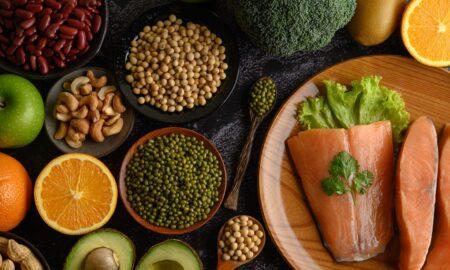Fructose has acquired a bad reputation for a number of reasons, though the small amount in fruits, berries, melons, sweet potatoes and onions doesn’t cause health problems. Fructose is a monosaccharide, the simplest and sweetest of sugars. Sucrose, or table sugar, consists of two simple sugars, fructose and glucose, which is the reason it’s called a disaccharide. Fructose is 1.73 times sweeter than sucrose.
Problems with fructose ensue when you eat large amounts, usually in a processed form called high-fructose corn syrup. Interestingly enough, it has the same composition as sucrose—equal parts of glucose and fructose, although high-fructose corn syrup comes in different grades, with some containing a greater portion of fructose. Unlike what happens with sucrose, where the two constituent simple sugars are bonded, in corn syrup the sugars are free, which has different metabolic effects.
While other sugars are metabolized in the intestine through the action of pancreatic enzymes, fructose is processed in the liver. With natural fructose the entrance of sugar into the blood is delayed, giving fructose a low glycemic-index number because it doesn’t lead to a rapid insulin reaction. The situation changes, however, with high-fructose corn syrup because of its free glucose content, which does provoke a considerable insulin release.
Large amounts of fructose tend to convert into triglycerides, or fat, especially in the liver. High-fructose corn syrup is linked to the increase of obesity and excess fat in the liver. That in turn is linked to insulin resistance, a precursor of diabetes, which is on the rise in both young and old.
In the liver, fructose is converted into fructose-1-phosphate. That results in a partial depletion of intracellular ATP, since the phosphate needed for ATP synthesis is used to metabolize fructose. ATP is the immediate source of energy for cells, and its depletion is linked to a number of diseases—which is the reason large amounts of fructose are considered detrimental to health. In addition, eating either fructose or high-fructose corn syrup blunts the normal release of hormones that provide satiety after meals, such as ghrelin, leptin and insulin. That results in a tendency to obesity.
A recent study, however, found that all humans aren’t created equal when it comes to fructose intake. Sixteen young, healthy men and women were overfed fructose for six days. The results indicated startling disparities between the sexes. Fasting triglyceride rose by 71 percent in the men but only 16 percent in the women. In the male subjects there was an increase in glucose production of 12 percent; one liver enzyme, ALT, rose by 38 percent; and fasting insulin increased by 14 percent. The high-fructose intake also inhibited fasting plasma free fatty acids (43 percent) as well as fat oxidation (48 percent)—but only in the men. Bodyweight increased by 1.1 percent in the men but only 0.7 percent in the women. Previous animal studies with high-fructose feeding showed that male rats experience more pronounced adverse metabolic effects than female rats. In human studies, triglycerides rose only in males after they took in fructose.
The initial study of young, healthy subjects shows that eating large amounts of fructose may be far more dangerous for men than women. Studies with rats show that females that have intact ovaries and that take in fructose experience no adverse metabolic effects. In older female rats, which have less or no estrogen, taking in fructose increased plasma triglyceride. The enzyme that synthesizes fat is lower in the livers of female rats and male rats treated with estrogen. It all points to the protection offered by higher estrogen counts. Another reason women are protected is that estrogen favors fat deposition under the skin, which offsets the higher blood triglyceride that high fructose intake would produce. Finally, more estrogen makes for more fat oxidation. IM
Couchepin, C., et al. (2008). Markedly blunted metabolic effects of fructose in healthy young female subjects compared with male subjects. Diabetes Care. 31:1254-1256.




















You must be logged in to post a comment Login